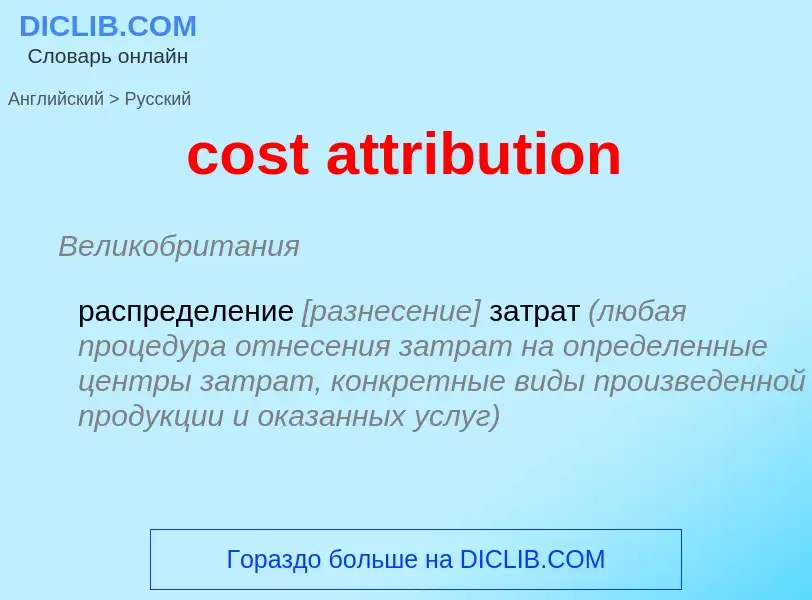Перевод и анализ слов искусственным интеллектом ChatGPT
На этой странице Вы можете получить подробный анализ слова или словосочетания, произведенный с помощью лучшей на сегодняшний день технологии искусственного интеллекта:
- как употребляется слово
- частота употребления
- используется оно чаще в устной или письменной речи
- варианты перевода слова
- примеры употребления (несколько фраз с переводом)
- этимология
cost attribution - перевод на русский
Великобритания
распределение [разнесение] затрат (любая процедура отнесения затрат на определенные центры затрат, конкретные виды произведенной продукции и оказанных услуг)
Определение
Википедия
Attribution is a term used in psychology which deals with how individuals perceive the causes of everyday experience, as being either external or internal. Models to explain this process are called Attribution theory. Psychological research into attribution began with the work of Fritz Heider in the early 20th century, and the theory was further advanced by Harold Kelley and Bernard Weiner. Heider first introduced the concept of perceived 'locus of causality' to define the perception of one's environment. For instance, an experience may be perceived as being caused by factors outside the person's control (external) or it may be perceived as the person's own doing (internal). These initial perceptions are called attributions. Psychologists use these attributions to better understand an individual's motivation and competence. The theory is of particular interest to employers who use it to increase worker motivation, goal orientation, and productivity.
Psychologists have identified various biases in the way people attribute causation, especially when dealing with others. The fundamental attribution error describes the tendency to attribute dispositional or personality-based explanations for behavior, rather than considering external factors. We tend to assume others are responsible for their own misfortunes, in other words, while blaming external factors for our own. Culture bias is when someone makes an assumption about the behavior of a person based on their own cultural practices and beliefs.
Attribution theory has been criticised as being mechanistic and reductionist for assuming that people are rational, logical, and systematic thinkers. It also fails to address the social, cultural, and historical factors that shape attributions of cause.

